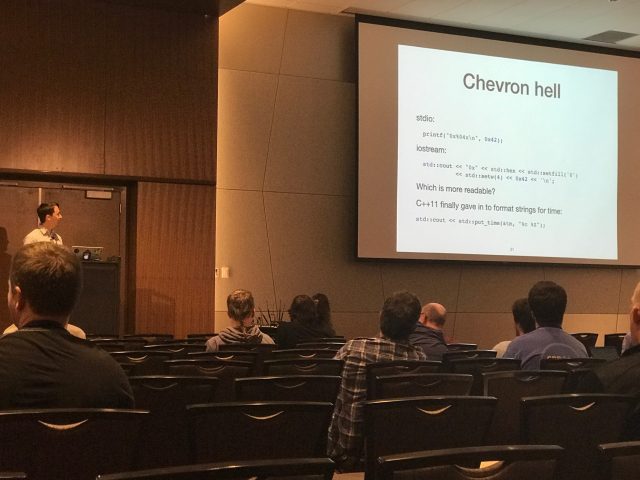#CPPCON2017. Day 2. Why Local Allocators are a Good ...--"No Bugs" Hare
The conference continues!
#CPPCON2017. Day 2. Why Local Allocators are a Good Thing(tm) Performance-Wise, and Why I am Very Cautious about C++17 STL parallelized algos
by "No Bugs" Hare
From the article:
At CPPCON2017 Day 2, two talks were of special interest to me. One was a 2-hour talk about Local Allocators – and another about C++17 STL parallelised algorithms.

 Cppcon continues!
Cppcon continues!